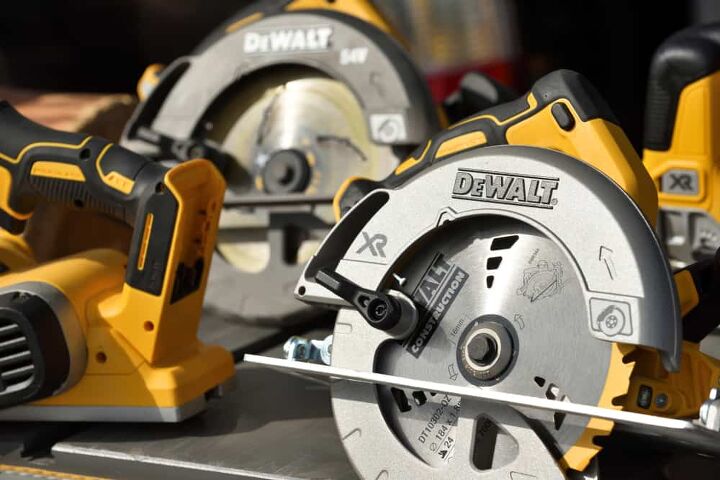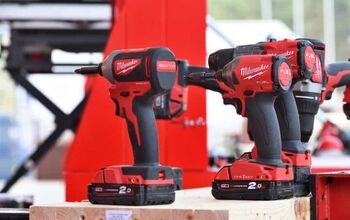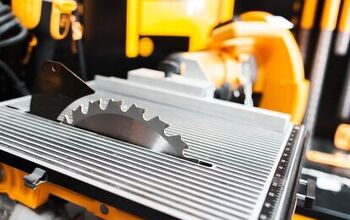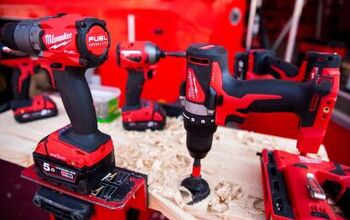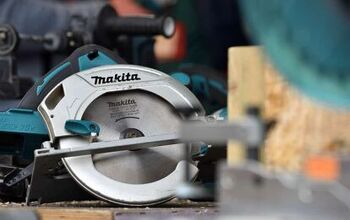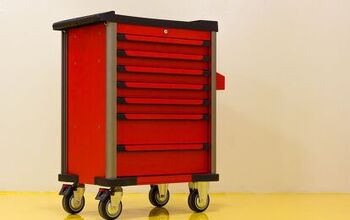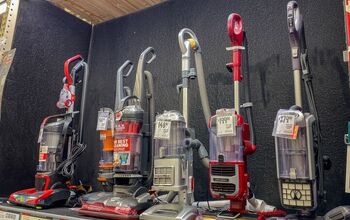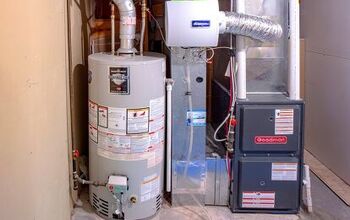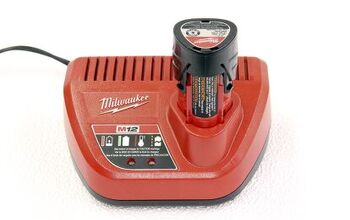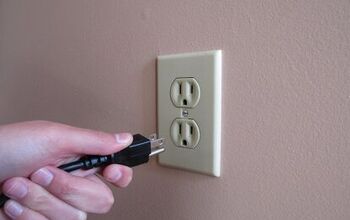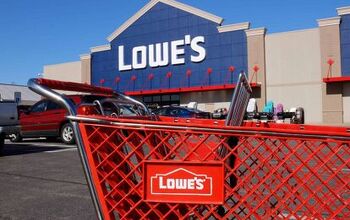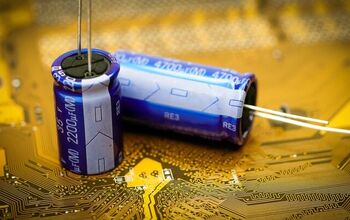Bosch Vs. DeWalt Power Tools: Which One Is Better?

With all of the various brands available in the power tool market, it can be tough telling the difference between one or the other. Seasoned professionals may have a little bit more knowledge, but what if you are just starting out in the DIY game?
Two names that you are no doubt familiar with are Bosch and DeWalt. What is the difference between the two? Which is the better buy? If you are willing to pay a little more money, then DeWalt offers superior quality and power. But Bosch is a bit more price-friendly, making it a great option for DIY types who want a quality tool without breaking the bank.
DeWalt: A History
Before we get to comparing the two brands, let’s take a look at how we got here. DeWalt is a giant in the power tool world. Launched in 1923, it has always had a focus on not only power tools but machinery as well.
What is interesting is that the founder, Raymond E. DeWalt, actually invented the radial arm saw. A radial arm saw is a circular saw that gets mounted onto a sliding arm to create a precise movement. Eventually, they were acquired by American Machine & Foundry back in 1949. From there, they were sold to giant Stanley Black & Decker in 1960.
Today, they are still a part of the Stanley Black & Decker group. They have gone through a bit of a rebrand under Black & Decker, however. They now have a focus as the premier toolmaker for professionals of all varieties.
Bosch: A History
Bosch goes back a little further, starting in 1886. They were based out of Stuttgart, Germany and focused primarily on electrical engineering and precision mechanics. They were mostly about creating technologies pertaining to the transportation industry.
It was in 1932 when the company first invented the hammer drill and entered the power tools foray. Since then, the “consumer goods” portion of the company has become the power tool and outdoor equipment focus. They also own other notable brands such as Dremel.
Bosch vs. DeWalt: Who Makes the Better Quality?
One of the most important aspects of a power tool is its quality and durability. If you can’t get a quality life out of your power tools, it turns into a lot of frustration and wasted money. That said, both Bosch and DeWalt make excellent tools that are meant to last a long time.
DeWalt is American Made…Kind Of
DeWalt markets itself as a brand that is “Built in the USA with global materials.” But that is only partially the truth. Yes, they make a huge array of their power tools in the United States, with seven companies spanning the country.
But they also have a huge overseas presence in terms of both sales and manufacturing. With factories in China, Brazil, Italy, the Czech Republic, the United Kingdom, and Mexico, they have a global imprint.
Finally, there is a bit of a misconception to clear up. That is the “built in the USA” touting when it comes to quality. More than a few companies out there have foreign manufacturing and their quality does not lack as a result.
Bosch Equates to Quality Foreign Made Tools
Though Bosch does not necessarily market itself as “American-made”, it does have that reputation in some circles. But make no mistake about it: Bosch makes most of its tools in Malaysia. They also have factories in China, Mexico, and Taiwan, with a small-scale manufacturing capability in Germany and Switzerland as well.
That said, Bosch, like DeWalt, has superior quality control across its manufacturing footprint. So, while that “made in Malaysia” tag may have been a deterrent 20 or 30 years ago, it is no longer something to worry about.
All of this equates to a quality product no matter which one you choose. In terms of overall longevity and quality, both are a seriously quality tool. You can rest assured that you have purchased a good product regardless of whose name is on it.
Bosch vs. DeWalt: Who Has the Better Warranty?
No matter what kind of power tool that you are purchasing, a warranty is hugely important. After all, even the best products in the world can go bad from time to time. With a proper warranty, you are assured that your investment is protected.
DeWalt
For just about all of its power tools, DeWalt has a three-year limited warranty. That means that they will repair any defects from the manufacturer for free. Depending on what tool you purchase, the warranty can go as high as seven years.
DeWalt also has a one-year free service contract that comes with its power tools as well. That means getting worn parts replaced and tools serviced completely free of charge. If that weren’t enough, DeWalt offers a 90-day money-back guarantee, no questions asked.
Bosch
Bosch’s warranty is just a one-year limited warranty for each of its power tools. Bosch’s power tools last for a long, long time, but the shorter warranty is something of a question mark. In addition to the one-year limited warranty, there is also a one-year service protection plan.
The service protection plan means that Bosch will perform a free safety, electrical, and performance check. Additionally, they will either lubricate or replace parts that have been worn under typical use.
Bosch vs. DeWalt: Who Has the Wider Offerings?
Another important factor when comparing tools is just how many tools they offer. For most DIYers, there is a reassurance in getting a wide array of tools from a brand that they like. If not for peace of mind, then for the sheer fact that you can swap batteries out between the various tools.
DeWalt
As one of the premier names on the market, DeWalt has a major focus on power tools. That shows in the more than 200 different offerings that DeWalt’s line of power tools encompasses. They make a huge array of 18V and 20V products. They also go all the way up to 60V in their FLEXVOLT offering.
Under the FLEXVOLT line, DeWalt’s portfolio of tool offerings is comprehensive. They have a huge array of saws, hammer drills, grinders, and even things like air compressors under their brand. That means anyone can get a complete line of tools all under the DeWalt name.
Bosch
Bosch, on the other hand, has offerings that go up to 36V. They don’t offer quite the heavy-duty selection that DeWalt offers, giving the latter the advantage in that regard. Further, Bosch only has a few offerings on their 36V line. That includes rotary hammers, hammer drills, impact drivers, and reciprocating saws but that is it.
In terms of total offerings, though, Bosch may have the advantage. They have a huge 12V platform, with a focus on the consumer. It has a lighter-duty set of offerings but includes multi-tools, jigsaws, impact drivers and drills, planers, routers, and more.
Edge: Bosch. Bosch simply does more with its light-duty offerings and even has a huge array of corded tools, too. That means more of a consumer focus than that of DeWalt.
Bosch vs. DeWalt: Impact Drivers
One of the most crucial tools in anyone’s arsenal will be the impact driver. They come in handy in so many different jobs that DIYers and professionals alike will need one in their toolbox. So, how do the two stack up when it comes to this important tool?
DeWalt
DeWalt has six different impact drivers, with four of them being part of the 20V max series that they offer. That means impact drivers that can offer up to 3,200 RPM and a whopping 1,825 inch-pounds of torque for superior power.
Their 12V and 18V impact drivers don’t carry quite the same level of power as the 20V, but still can hit up to 2,800 RPM.
Bosch
Bosch’s flagship series of impact drivers falls under the 18V offerings. They have two-in-one bits and even sock impact drivers, giving consumers greater versatility in their usage. They have just two 12V drivers, one that has a regular motor and the other with a brushless motor for superior performance.
Edge: DeWalt. DeWalt not only brings the versatility in their line of impact drivers, but the power as well. Whether you go lightweight with a 12V option or all the way up to the 20V MAX line, the power is with DeWalt. Bosch is a fine tool in its own right, but consumers and professionals alike will appreciate that level of power that DeWalt brings with its impact drivers.
Bosch vs. DeWalt: Which is the Better Choice?
While it ultimately comes down to whether you are a DIYer or a professional, the edge goes to DeWalt across the board. You couldn’t go wrong with either tool, really. They both are made of superior quality and will last for a long time to come.
That said, DeWalt has the advantage in several significant factors. When it comes to the sheer number of offerings, DeWalt holds the advantage. They not only have a greater portfolio, but they also have higher voltage offerings as well, thanks to the 20V MAX line going all the way up to 64V.
Bosch, on the other hand, is a fine brand for homeowners that are looking for a smaller tool along with the 12V variety. Moreover, the cost will likely play an important factor. You can safely expect to pay quite a bit more for DeWalt tools than you would for Bosch. That is because the former is geared towards professionals, not just homeowners.
DeWalt delivers superior selection and power, while Bosch is a great choice for homeowners on a budget. Whatever you pick, you can rest assured that you purchased a quality tool. While you’re here, check out our guide on Bosch vs. Makita Impact Drill Drivers.

Ryan Womeldorf has more than a decade of experience writing. He loves to blog about construction, plumbing, and other home topics. Ryan also loves hockey and a lifelong Buffalo sports fan.
More by Ryan Womeldorf



